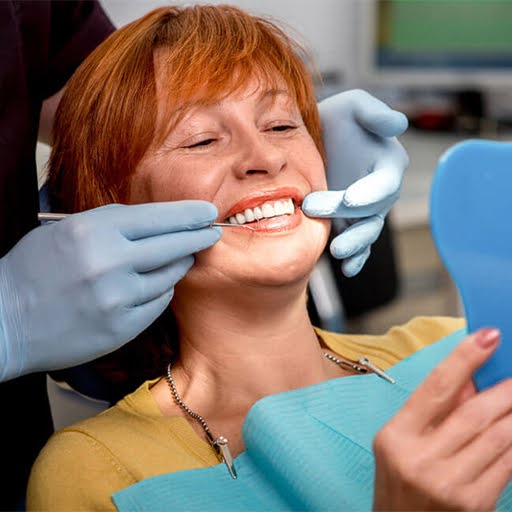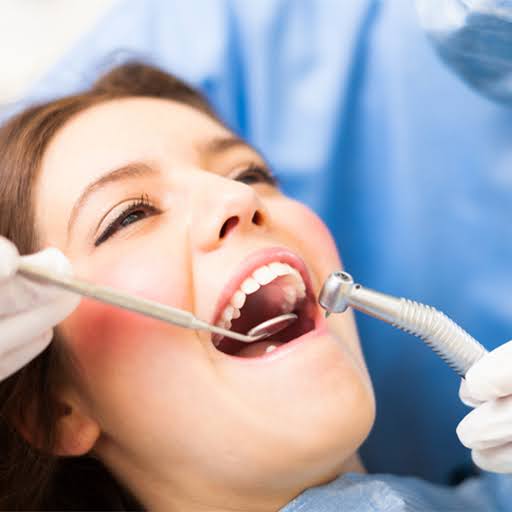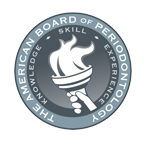
Introduction
Uh oh! A chipped tooth, a sudden crack, or a tooth removal can leave you feeling stressed about your smile. But don’t worry, there’s a solution! Temporary teeth, also called immediate temporization, can come to the rescue. These are like stand-in crowns or bridges that dentists put in right after they fix or take out a tooth. They keep your smile looking good and working well until your permanent restoration is ready.
Even though temporary teeth are great, there are a few things to keep in mind to make sure everything goes smoothly. Let’s explore seven common mistakes to avoid so you can have a confident smile with your temporary teeth.
Summary
1. Not Talking Things Through with Your Dentist
2. Forgetting How Important a Good Fit Is
3. Skipping Out on Taking Care of Your Temporary Teeth
4. Not Being Prepared for Some Sensitivity
6. Ditching Follow-Up Appointments
7. Freaking Out If Something Goes Wrong
1. Not Talking Things Through with Your Dentist

It’s really important to have a chat with your dentist before your appointment. Imagine it’s like organizing a party! You need to let your dentist know what you’re expecting and if there’s anything that’s bothering you. For instance, if you’re allergic to certain foods or if you need soft foods because of braces, it’s crucial to mention it. You might also want your temporary tooth to match your other teeth perfectly. The more your dentist understands your preferences and any challenges you might face, the better they can create temporary teeth that suit you and look natural.
This open conversation ensures that you have a smooth and successful experience with your temporary smile. By sharing your concerns and desires with your dentist, they can tailor their approach to meet your needs, making sure you’re comfortable and satisfied with the outcome. So, don’t hesitate to speak up and communicate openly with your dentist—it’s the key to getting the best results!
2. Forgetting How Important a Good Fit Is

Think about your favorite pair of shoes. If they’re too loose, they’ll flop around, making it difficult to walk comfortably. The same principle applies to temporary teeth! If they’re not fitting well, it can be quite bothersome. A loose temporary tooth might rub against your gums, causing soreness and irritation. It can also interfere with eating, speaking, and even keeping the tooth in your mouth securely, which can be really frustrating and disrupt your daily activities.
If you feel that your temporary tooth is too tight, loose, or uncomfortable when your dentist puts it in, don’t hesitate to speak up. Your dentist can make small adjustments to ensure the perfect fit for your temporary smile. A well-fitting temporary tooth will feel comfortable and stay in place, allowing you to eat, speak, and smile confidently without any discomfort or inconvenience. So, it’s important to communicate any discomfort to your dentist promptly to ensure your temporary tooth fits just right.
3. Skipping Out on Taking Care of Your Temporary Teeth

Taking care of temporary teeth is just as important as looking after your permanent ones! Brushing your temporary teeth two times every day and flossing once daily will keep them clean and freshen your breath. It’s crucial to use a soft toothbrush and gentle toothpaste to avoid harming the temporary restoration. Treat them kindly, similar to how you would handle your beloved sunglasses – with care to ensure they stay in good shape for as long as possible!
Just like how you cherish your favorite pair of sunglasses, maintaining your temporary teeth is essential for their longevity. By following a simple routine of brushing twice daily and flossing regularly, you can ensure they stay clean and free from any issues. Opting for a soft toothbrush and gentle toothpaste is vital to safeguard the temporary restoration from damage. So, remember to pamper your temporary teeth like you would your cherished sunglasses, ensuring they remain in top condition for as long as possible.
4. Not Being Prepared for Some Sensitivity

After you’ve had a tooth fixed or pulled out, the spot around it might feel a bit sensitive. This feeling could be even stronger if you have a temporary tooth there. But don’t fret, it’s usually just a passing thing (no joke intended!). Your dentist might suggest some pain relievers you can easily get without a prescription, or they might recommend a special toothpaste to ease any discomfort.
When you’ve had dental work done, it’s normal for the area to feel a bit sensitive. This sensation can be more noticeable if there’s a temporary tooth in place. However, this sensitivity is usually temporary and not something to worry about. Your dentist can provide guidance on how to manage any discomfort, such as suggesting over-the-counter pain relievers or recommending a specific toothpaste designed to alleviate the sensitivity. So, while it might feel uncomfortable for a little while, rest assured that it’s all part of the healing process.
5. Ignoring Signs of Damage

Temporary teeth may seem strong, but they can still get hurt. If you see any cracks, chips, or color changes in your temporary tooth, it’s important to tell your dentist. These might mean your tooth is damaged and needs fixing. Getting help early can stop bigger problems and keep your temporary teeth working well.
When you notice any issues with your temporary teeth, don’t wait. Tell your dentist so they can check and fix the problem. Taking care of it early helps keep your teeth healthy and working like they should.
6. Ditching Follow-Up Appointments

Just like going to the dentist for regular checkups, it’s important to attend follow-up appointments when you have temporary teeth. These appointments let your dentist check how well the temporary replacement fits, if there are any signs of wear, and if the healing underneath is going well. It’s also your chance to ask any questions or talk about any worries you might have. Going for these regular follow-up appointments helps make sure your temporary replacement stays comfortable and works well.
Attending follow-up appointments when you have temporary teeth is crucial. It lets your dentist keep an eye on how your temporary teeth are doing, ensuring they fit well and aren’t causing any problems. These appointments are also a great opportunity for you to discuss any concerns you may have and get guidance on how to take care of your temporary teeth properly. By staying committed to these appointments, you can ensure a smoother experience with your temporary teeth and maintain good oral health in the long run.
7. Freaking Out If Something Goes Wrong

If your temporary tooth gets damaged or falls out, it’s essential not to worry. The first step is to get in touch with your dentist as soon as possible. They will examine the situation carefully and decide what needs to be done next. This could mean fixing the temporary tooth, securing it back in its place, or making a new one to replace it.
When your temporary tooth breaks or comes out, it’s natural to feel concerned, but contacting your dentist promptly is the best way to address the issue. They have the expertise to evaluate the problem and provide the necessary treatment to ensure your dental health is taken care of properly. So, stay calm and reach out to your dentist for assistance.
FAQs
Q.1. How long do temporary teeth usually last?
A.1. Temporary teeth can last anywhere from a few weeks to several months, depending on the material used and the complexity of the case.
Q.2. What happens if my temporary tooth breaks?
A.2. Contact your dentist immediately. They can assess the damage and determine the best way to fix it.
Q.3. Can I eat normally with temporary teeth?
A.3. While temporary teeth are strong, it’s best to avoid hard, sticky, or chewy foods. Opt for softer options that require minimal biting pressure.
Q.4. Do temporary teeth look natural?
A.4. Modern materials allow dentists to create temporary teeth that look very natural. Discuss your aesthetic preferences with your dentist beforehand.
Q.5. Will temporary teeth affect my speech?
A.5. Temporary teeth might feel a bit bulky at first, which can impact your speech slightly. However, this usually improves within a day or two as you adjust to the new restoration.
Conclusion
Temporary teeth are a fantastic solution to maintain a natural-looking smile and chewing function while your permanent restoration is being made. By following these tips and avoiding common mistakes, you can ensure a smooth and successful experience. Remember, communication is key! Talk openly with your dentist about your expectations and concerns, and don’t hesitate to reach out if you have any questions or experience any problems. With a little care and attention, your temporary teeth will help you maintain a confident smile until your permanent restoration arrives. So relax, smile wide, and enjoy the peace of mind knowing you have a temporary solution that looks great and functions well!
For personalized assistance or to schedule a consultation, please contact our dedicated team at (267) 908-4867 or visit our website at Premier Periodontics PA Contact Us. Your smile is our top priority, and we’re committed to providing you with the guidance and support you need for a comfortable dental experience. Trust us to prioritize your oral health and support you on your journey to a vibrant and healthy smile. We look forward to working with you to achieve your oral health goals.









